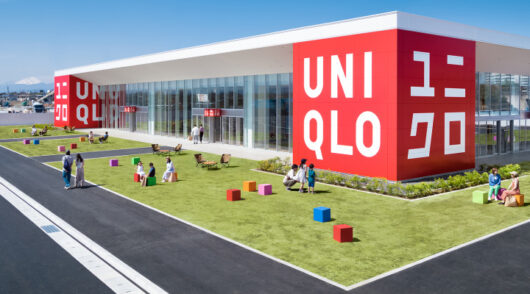“Mobile-first” or “mobile-only” markets like India, Indonesia, Malaysia and Vietnam are driving the Asian mCommerce boom according to a new report.
Criteo, a performance marketing technology company, says in its 2016 State of Mobile Commerce Report that the Asia Pacific region has been an mCommerce powerhouse for a few years now, driven by multiple device ownership in developed markets like Hong Kong, Japan, Singapore and Taiwan.
“With increasing affluence and improving technological infrastructure set to bring even more consumers online and on smartphones, it is only a matter of time before the region establishes itself as the clear global leader in mCommerce transactions,” said Yvonne Chang, executive MD of Criteo in Asia Pacific.
“Asian mCommerce has reached a tipping point and is surpassing desktop purchasing as regional retailers continue to invest in mobile shopping platforms. However, retailers must go one step further and create a truly seamless mobile and cross-device experience to engage users along their digital paths to purchase. Brands that master the mobile trend will have a head start over competitors, as well as the momentum to lead the pack in the shopping seasons ahead,” added Chang.
The report provides insight into consumers’ shopping habits and predictions for mCommerce across the region. Mobile now accounts for 60 per cent and 54 per cent of all eCommerce transactions in Taiwan and Southeast Asia respectively.
The research shows that brands can no longer ignore mobile platforms as a primary means to drive eCommerce sales.
“While technology enhancements have facilitated shopping on mobile, marketers are challenged with targeting consumers across every environment along the path to purchase. To boost revenue, retailers must therefore combine a strong mobile web and app presence with personalised mobile targeting strategies to engage with shoppers wherever and whenever they browse and purchase,” explained Chang.
Report highlights
Key findings of the research include:
- Mobile shopping dominates: The number of regional shoppers going online, be it via desktop or mobile, to both browse and purchase products continues to grow, with a higher rate of transactions captured on mobile devices than via traditional digital purchase paths. Retailers who have optimised their mobile shopping experience accordingly – both in-app and on mobile – are pulling away from their competitors and continue to see strong traction from consumers.
- In H1 2016, the top retailers in Southeast Asia grew mobile sales by 37 per cent year-over-year to now capture 54 per cent of all eCommerce transactions.
- Across all Southeast Asian retailers, the mobile share of eCommerce transactions increased by 19 per cent year-on-year.
- Taiwan also emerged as the regional leader, with mobile sales now capturing 60 percent of all eCommerce transactions for top retailers.
- Smartphone-focused shoppers: The smartphone continues to expand its prominence as the go-to shopping device, especially as features like fingerprint recognition make transactions effortless, while tablet purchasing steadily declines. All retailers should ensure they have a mobile-centric marketing strategy that embraces in-app and the mobile web to meet their smartphone-focused audiences. For the Asia Pacific region, the region-specific data highlights that retailers must focus on mobile optimisation for smaller screen sizes and making their apps available on Google Play, rather than just the Apple App Store.
- For the first time, smartphones delivered the majority of mobile transactions in every major global market, with the Asia Pacific region – Japan, South Korea, Southeast Asia and Taiwan – leading the charge.
- Smartphones continue to dominate Asia Pacific’s retail mobile transaction share. More than 80 per cent of mobile transactions took place on a smartphone (as compared to tablets) in Japan, Southeast Asia, South Korea and Taiwan, significantly more than the US and UK, where at least 30 per cent of retail mobile transactions take place on tablets.
- Indonesia’s retail mobile transaction share, with more than 83 per cent of transactions on smartphones (as compared to tablets), is both the highest and fastest growing within Southeast Asia.
- In Southeast Asia, majority of mobile commerce transactions are completed on Android devices – more than three times that of Apple devices, despite at least 10 per cent year-on-year growth in transactions on both types of devices. This is a reverse from the global trend, where majority of mCommerce transactions today are completed on Apple devices instead.
- Sophisticated apps drive high spending: Top retailers are building savvy, intuitive and useful shopping apps that give consumers a seamless way to shop on mobile devices. Capabilities like home screen presence, instant loading, offline content, push notifications, personalisation and access to native functionality make the mobile shopping experience richer and more immersive for consumers. Brands that can deliver this feature-rich environment and create a unified, consistent and relevant experience for shoppers regardless of device will succeed in driving retention and conversion rates:
- Retailers with a sophisticated mobile app presence saw up to 54 per cent of their mobile transactions generated in-app in Q2 2016, an increase from 47 per cent in 2015.
- Apps close far more deals than other online shopping environments and convert three times more shoppers than mobile web.
- For the first time, mobile apps saw higher order values than desktop and the mobile web, with an average of US$127 spent in-app versus US$100 on desktop and US$91 on mobile web.
- Leaders in mobile app maturity drive 90 per cent more conversions than emerging retailers.






